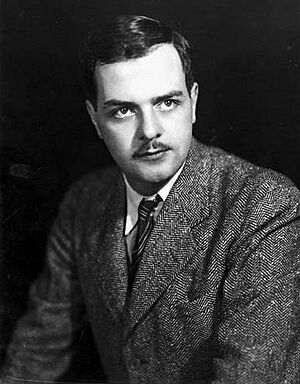Hazen Argue facts for kids
Quick facts for kids
Hazen Argue
|
|
|---|---|
 |
|
| 3rd Leader of the Co-operative Commonwealth Federation | |
| In office August 11, 1960 – August 2, 1961 |
|
| Preceded by | M. J. Coldwell |
| Succeeded by | Tommy Douglas (as leader of the NDP) |
| Senator for Regina, Saskatchewan | |
| In office February 24, 1966 – October 2, 1991 |
|
| Appointed by | Lester B. Pearson |
| Member of the Canadian Parliament for Assiniboia |
|
| In office 1949–1963 |
|
| Preceded by | Edward McCullough |
| Succeeded by | Lawrence Watson |
| Member of the Canadian Parliament for Wood Mountain |
|
| In office 1945–1949 |
|
| Preceded by | Thomas Donnelly |
| Succeeded by | District abolished (1947) |
| Personal details | |
| Born |
Hazen Robert Argue
January 6, 1921 Kayville, Saskatchewan, Canada |
| Died | October 2, 1991 (aged 70) Regina, Saskatchewan, Canada |
| Political party | CCF (1945–1961) New Democratic Party (1961–1962) Liberal (1962–1991) |
| Cabinet | Minister of State (Canadian Wheat Board) (1980–1984) |
| Committees | Chair, Special Committee on Preventive Health Care Chair, Standing Committee on Agriculture |
Hazen Robert Argue (January 6, 1921 – October 2, 1991) was an important Canadian politician. He served in both the House of Commons and the Senate, which are parts of Canada's Parliament. He started his political journey with the Co-operative Commonwealth Federation (CCF) party. He became a Member of Parliament (MP) in 1945. Later, he was the last leader of the CCF party from 1960 to 1961.
In 1962, he joined the Liberal Party. He was appointed to the Senate in 1966. He also served in the federal government as a minister from 1980 to 1984. He was known for supporting the idea of Canada joining with the Turks and Caicos Islands.
Contents
Hazen Argue: A Canadian Politician
Early Years and First Steps in Politics
Hazen Argue grew up on a farm. He worked on his family's farm until he became a Member of Parliament. In 1945, at just 24 years old, he was elected to Parliament. He was the youngest MP in Canada at that time. He represented the Co-operative Commonwealth Federation (CCF) party.
After the 1958 election, only eight CCF members remained in Parliament. Hazen Argue was the only one from Saskatchewan. The CCF party leader, M. J. Coldwell, lost his seat. So, the CCF members in Parliament chose Argue to be their leader in the House of Commons.
Leading the CCF and the Birth of the NDP
When M. J. Coldwell stepped down as the national CCF leader in 1960, Hazen Argue was elected to take his place. This was at the party's last big meeting in the summer of 1960.
At this time, the CCF party was planning to join with Canadian labour groups. They wanted to create a new political party. This new party was called the New Party during its planning stages. Many local groups for the New Party started across the country. In 1961, the new party was officially formed. It was called the New Democratic Party (NDP).
Hazen Argue ran to be the first leader of the new NDP. He was running against Tommy Douglas, who was a very popular leader from Saskatchewan. Douglas had a lot of support from labour groups. Tommy Douglas won the leadership race easily. Hazen Argue accepted the results. He promised to keep working for the people. He stayed as an MP for the NDP for the rest of that year.
Joining the Liberal Party and the Senate
About six months later, Hazen Argue made a big change. He decided to leave the NDP and join the Liberal Party. He felt that the NDP had too many disagreements. He also believed that the interests of farmers, like himself, were not being heard enough.
He was re-elected as a Liberal MP in 1962. However, he lost his seat in the next two elections, in 1963 and 1965. In 1966, he was appointed to the Senate as a Liberal. Senators are appointed, not elected, and serve until age 75.
After the 1980 election, the Liberal Party did not win any seats in Western Canada. So, Prime Minister Pierre Trudeau asked Hazen Argue to join his team of ministers. Argue became the Minister of State for the Canadian Wheat Board. This meant he was in charge of important decisions about Canada's wheat industry.

